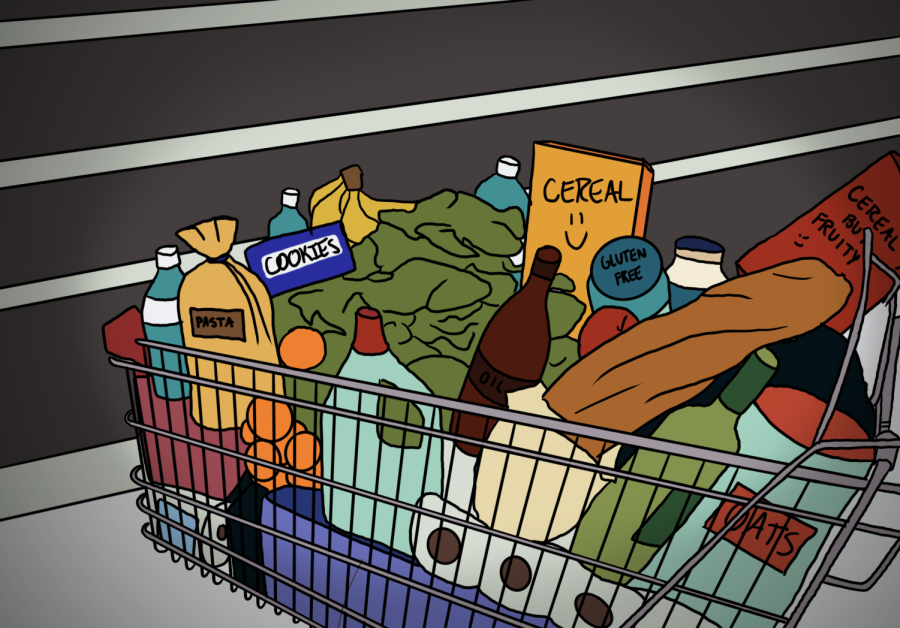University of Minnesota researchers and student groups are increasingly seeing how childhood weight teasing, social media workout, diet culture and weight stigma within the healthcare industry affects the likelihood of disordered eating in younger populations.
Weight stigma occurs when an individual has negative attitudes and thoughts toward another individual on the sole basis of their weight, size or shape of their body. Weight teasing is verbal insults directed toward another person, according to the National Library of Medicine.
University researcher Laura Hooper is a former registered dietician for Seattle Children’s Hospital in the Division of Adolescent Medicine and also worked in their eating disorder treatment program.
In 2022, Hooper conducted a research study that followed adolescents from the age 14 to 22 with an eight-year follow up period, which aimed to use a healthy equity lens to inspect cross-sectional and longitudinal relationships between preliminary weight teasing and later signs of weight-related health-based behaviors.
Hooper’s research found links between high degrees of weight teasing and high voluntary screen time later in life, as well as a general high level of weight stigma within the healthcare industry.
According to Hooper, her patients reported past weight-teasing in many cases, and she saw weight stigma often occurring in individuals who “moved through the world in larger bodies.” Weight stigma at times is a precursor to disordered eating.
Additionally, Hooper collaborates with colleagues at the University’s Medical School with the goal of producing a new educational training for pediatric residents, which would push med students to “have these conversations with adolescents about nutrition, physical activity, weight and body image in a way that is not going to convey stigma or make them feel bad about their body.”
As social media creates space for fitness and diet culture, there comes a new movement that caters workout content toward teenagers, Hooper said.
With workout videos, weight loss challenges and “what I eat in a day” videos circulating the web, Hooper became a part of a team called “Move and Thrive,” which produces body positive workout videos where representation of various body types works to foster an “inclusive environment,” Hooper said.
“A lot more people are speaking about their lived experience with weight stigma. People are writing books, we have “Shrill” the TV show and my colleagues are sending me news articles all the time,” Hooper said. “It’s just been really fun to see this is getting so much more attention. It feels like the tides are turning.”
The environment created by healthcare workers plays a significant role in body image, Aimee Tritt, a registered dietician for Hennepin Healthcare, said.
“When I see patients in the clinic, if I weigh them and I enter their weight in the chart, then BMI will automatically show up on the after visit summary,” Tritt said. “I wait, and I don’t enter it until after a patient’s left the office, then it doesn’t show up, but I intentionally pay attention to that.”
Tritt is also the registered dietician advisor for Boynton Health’s Student Nutrition Advocacy Collaborative (SNAC). The group currently helps students who are confused and overwhelmed by the mass amount of nutrition advice on the web.
“We’re definitely now a group that learns about fatphobia and weight bias, understanding how to have these conversations and support people in ways that are not weight centric and diet focused,” graduate coordinator Brianna Caverzagie said.
Students can make appointments with SNAC, and one of the group’s primary focuses is having appointment options that are not weight centric.
“There’s three options of appointments that you can choose, and none of them are, ‘Unhappy with my weight;’ it’s ‘balance eating for energy’ or things like that,” Maddie Johnson, a third-year University student and SNAC member, said.
A key aspect of the appointments is they can be personalized by the patient based on their needs.
“In the appointments I’ve had, I’ve talked about everything from eating as a freshman in the dining hall, meal prepping and cooking,” Maya Ezekiel, a fourth-year student and SNAC member, said. “I’ve also talked more about the mental health aspect of nutrition.”













